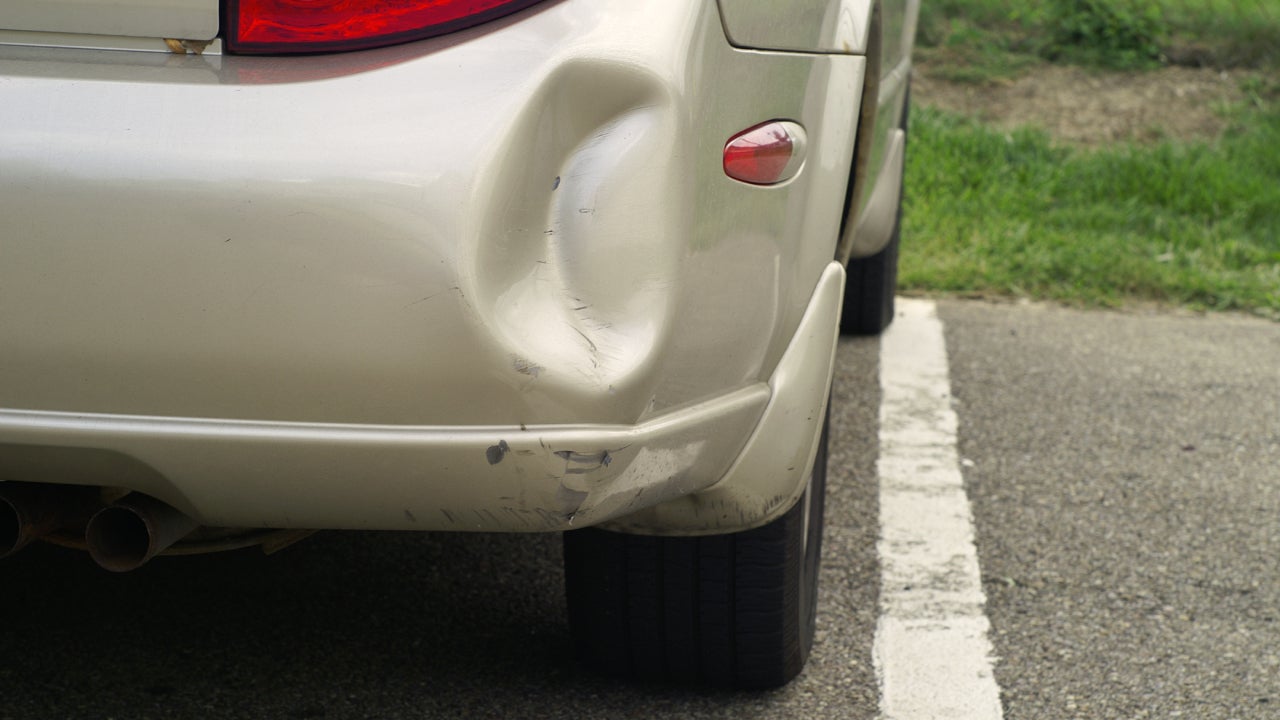Key takeaways
- Filing an insurance claim for bumper damage can increase your premiums and require you to pay out of pocket for your deductible.
- Generally, you should file a claim if another driver was involved, someone was injured or the repair costs will exceed your deductible.
- You might consider skipping the claim if no one else was involved and only your vehicle was damaged.
As a driver, having a reliable car insurance policy can offer peace of mind and provide financial protection if you’re involved in an accident. However, there are certain situations where it might not make sense to file an insurance claim.
Say, for example, you get into a fender bender — which is a minor accident where no one is hurt and only results in cosmetic damage to your bumper. In cases like these, it can be hard to decide whether you should ask your insurance company to pay for the damage and face a potential premium increase. Here’s what to consider before submitting a bumper damage insurance claim.
Should I file an insurance claim for bumper damage?
After a fender bender, you might wonder if it’s worth filing a car insurance claim to cover some of the repair costs. But before you submit a claim for bumper damage (or any other event that impacts your vehicle), you should think about the potential consequences.
For starters, your claim could drive up the price of your car insurance premiums for the next several years. Plus, if your car needs repairs, your deductible would have to be paid out of pocket. To decide whether filing a claim is the right choice for you, consider the following questions:
1. Was another driver involved?
When there’s another motorist involved in your fender bender, things get a bit more complicated than if you were the only driver. In cases like these, both drivers may agree to handle the situation without going through insurance. However, when multiple motorists are involved in an accident, filing a claim is typically the best option.
2. Was anyone injured?
No matter who was responsible, you should notify your insurance company as soon as possible if you, your passenger(s) or another driver is injured in the accident. If you don’t let your insurance company know, you could face consequences — such as a lawsuit for injuries — later on.
3. How much is the cost of damage compared to your deductible?
Filing a claim could make sense if you were the only driver involved and the cost to fix the damage is higher than your deductible. However, if you submit a claim and the repair cost is less than your deductible, you won’t get a payout — but your premium could still increase when you renew your policy.
Will car insurance cover bumper damage?
Can you fix your car bumper through your insurance? In some cases, yes — but it depends on the type of car insurance coverage you have. You’ll usually be covered if you have:
- Collision coverage: After an accident, this type of coverage helps pay for repair and replacement from damage to your vehicle.
- Comprehensive coverage: While collision coverage applies if you hit someone else’s car or a stationary object, comprehensive coverage kicks in if your car is damaged in another way — for example, by vandalism, weather-related damage or by hitting an animal.
- Uninsured motorist property damage: This type of coverage is available (and even mandatory) in some states. It helps cover the cost of repairs if another driver hits you and doesn’t have insurance.
If another driver was at-fault for the accident and they have liability insurance, it should cover the damage to your car.
When to consider filing a claim for a fender bender
You should consider making a car insurance claim for bumper damage in certain scenarios, including when:
- You have to pay liability coverage for another motorist: If you’re on the hook for another driver’s vehicle damage or medical bills, you should file a claim and inform your insurance company.
- You can’t afford the repair costs: It’s also worth making a claim if the repair costs are more than your deductible and you don’t have the financial means to cover them yourself.
- You weren’t at fault: If another driver caused the bumper damage, you might have to involve your insurer and get the other motorist’s liability coverage.
When to consider not filing a claim for a fender bender
Submitting an insurance claim to pay for minor bumper damage isn’t always logical. You might consider skipping the claim if:
- There’s only damage to your vehicle: If you caused the damage and there were no other drivers involved, you might choose to pay for the repairs out of pocket — especially if you don’t have collision coverage.
- You’ve recently filed a claim: Filing multiple claims in a few years could lead to drastic increases in your premium rate. Plus, it could put you into the high-risk driver category. However, this doesn’t apply if you were at-fault and damaged another person’s car — in which case, you should file a claim.
- You were at-fault: Again, if the bumper damage was due to your own negligence (and no one else was involved), it may be best to pay for the repairs yourself. Filing a claim in this type of situation could be a red flag to your insurance company.
Bankrate’s insight
Keep in mind: Car insurance is supposed to help you avoid high out-of-pocket costs and protect you financially. If you don’t have the funds to fix the damage you caused or sustained in a fender bender (or any accident), filing a claim can provide some immediate financial relief — even if it increases your premium down the road.
Frequently asked questions
Why we ask for feedback
Your feedback helps us improve our content and services. It takes less than a minute to
complete.
Your responses are anonymous and will only be used for improving our website.
Help us improve our content
Read the full article here
















